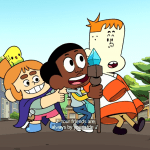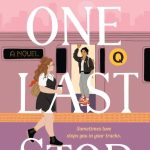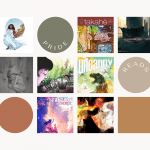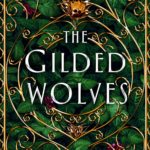“Revenge of the Genderqueers”: An Interview with Shelley Parker-Chan
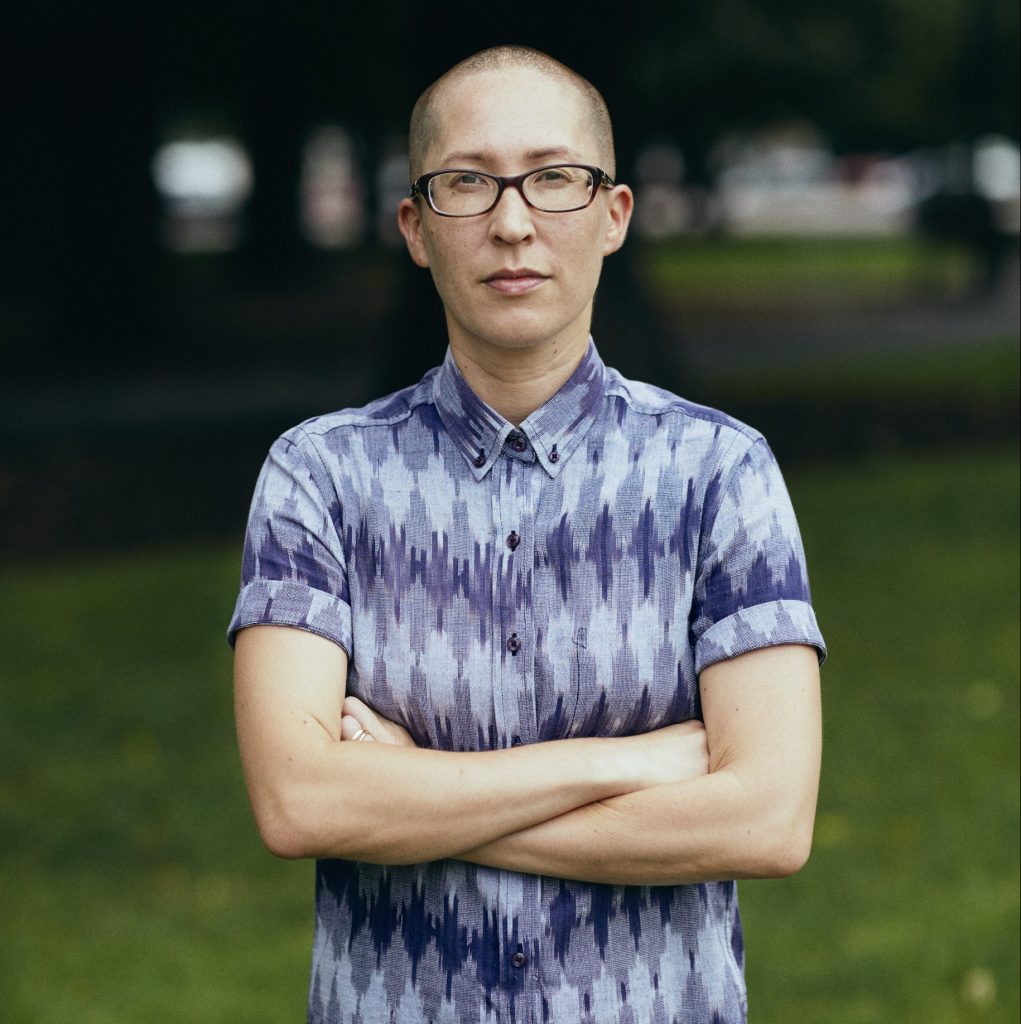
History, at least the history we’re taught in school (at least in my limited scope of experience, i.e. rural Pennsylvania public school), is whitewashed, straight-washed, and virtually everything else-washed, stripped of anything that might be considered “different” or “other” and presenting a very limited, very inaccurate account of events. Queer couples throughout history are referred to in various historical texts as “good friends” or “roommates”, and people today still do not realize just how many historical figures were LGBTQ+. With her debut novel, She Who Became the Sun, author Shelley Parker-Chan is helping to change that perception – although, that wasn’t her original intention.
That isn’t to say that the queerness of the story wasn’t her intention, because it obviously very much was. “The one thing that’s meant the most to me is getting, like, notes from people who said, you know, ‘I saw my queerness reflected in this book’ – specifically my genderqueerness or my transness or a sense of in-betweenness,” Shelley Parker-Chan said when I spoke to her over the phone last week. “That’s why I wrote the book.”
Parker-Chan, who graciously agreed to the interview despite the approximately 12-hour time difference (she lives in Australia, and I live in the eastern US), went on to say, “The overwhelming reason why I wrote the book is because I wanted to write that kind of genderqueer character that I wasn’t finding anywhere else.”
It’s one of my favorite things about the publishing industry now – the amount of choice. Growing up, there were so few books with queer protagonists, and they likely did not end happily. Now, I can look at a rec list of LGBTQ+ books and actually choose based on plot instead of just automatically adding it to my to-read pile because it’s got gay characters.
As for the plot of She Who Became the Sun, the first in a duology chronicling the rise to power of the person who would found the Ming dynasty in China, that was a little more roundabout. But again, it came down to one simple thing: character. “I didn’t start off thinking, ‘Oh, I’m going to write about the Ming dynasty or this particular era. It was more that I was looking for a particular kind of character.”
“When I started off, I wanted to write a story about a monk. And I wanted to write a story about a ‘bad’ monk, like someone who violates their really important sacred vows of non-violence and non-attachment for the sake of something extremely worldly, like ambition. And so I was kind of thinking this idea over and I came across this figure in history who turned out to have been a monk and had that ambition, because obviously, this is the person who became an emperor – they were a peasant and they rose all the way up to emperor – and he founded the Ming dynasty. And this character caught my attention, because also this kind of rise from, like, nobody to emperor, kind of signifies the ultimate sort of self-made man. And I thought, ‘Wow. What if you twisted that ambition and made it of someone who wasn’t a man?'”
That, in essence, is how we have the story of Zhu Chongba, an AFAB character who, after great personal tragedy and in seeming defiance of the universe, assumes her dead brother’s identity and seeks to claim the great fate the fortune-tellers bestowed upon him. Zhu is based on Zhu Yuanzhang, who reigned for 30 years as the founding emperor of the Ming dynasty. However, even though the events are historical, the story is very much not, with Parker-Chan deciding early on that the novel would be “as historically accurate as your average low-budget Chinese TV drama, which is not very accurate.”
“I jokingly say that the subtitle of She Who Became the Sun is ‘Revenge of the Genderqueers’. It’s told a bit like a Marvel movie mashed with a C-drama or a Star Wars – you know, farm boy’s rise to power. It is a rise to power. The genderqueers win. And I kind of just wanted that moment of like, ‘We’re here and we have our moment in the sunshine.’ Often you’ll see genderqueer characters may have tragedy or they’re side characters, and I’m like, nope, front and center and dammit, everyone’s gonna kneel to them. You know, just that moment of hell yeah, we’re here.”
Historical accuracy was not a primary concern on Parker-Chan’s, but that doesn’t mean that there was no research involved. For She Who Became the Sun, it was less about specific people and events and more about getting the feel of the time period. “I was really just trying to get a sense of the era in my head,” said Parker-Chan, whose approach to research she describes as “scattershot” and basically involves reading “a whole bunch of random unrelated things that are approximately related to the topic at hand. And sometimes not even.”
Despite not having a typical dedicated idea of research, it seems like Parker-Chan did quite a lot of it. “I’d go to the library on the weekends and be like, ‘Hmm, I’ll read about Chinese history a bit.’ So I read the classics – there are like the four, five Chinese big classic epics. I read a lot of Chinese web novels in translation because they’re just super fun, and that was the style I was going after. I read a lot about gender in ancient China. I read all the history. And there’s a, like, 32-volume books of science and technology of the era, which I did kind of dip into.”
(By the way, if you’re looking for web novel recs, like I was, Parker-Chan admits that those days are mostly behind her, though she has recently read Word of Honor and talked quite a bit about Bu Bu Bing Xin by Tong Hua.)
Reading wasn’t Parker-Chan’s only method of research, though. “I went to a lot of museums, because I was living in Asia at the time. So I had that luxury of being able to go to Taiwan and Singapore and Malaysia, and they have a lot of, obviously, focus on Asia in their museums. But it wasn’t a very rigorous or systematic type of research. I was really just trying to get a sense of the era in my head.”
We at The Geekiary tend to gravitate towards media that features queer protagonists, which is one of the reasons She Who Became the Sun originally piqued my interest. The queer representation in this book is strong, as it’s a fundamental part of both of the main characters’ arcs. As someone who identifies as asexual, I particularly identified with Zhu, who while not being explicitly called such was intended by Parker-Chan to be on the ace spectrum.
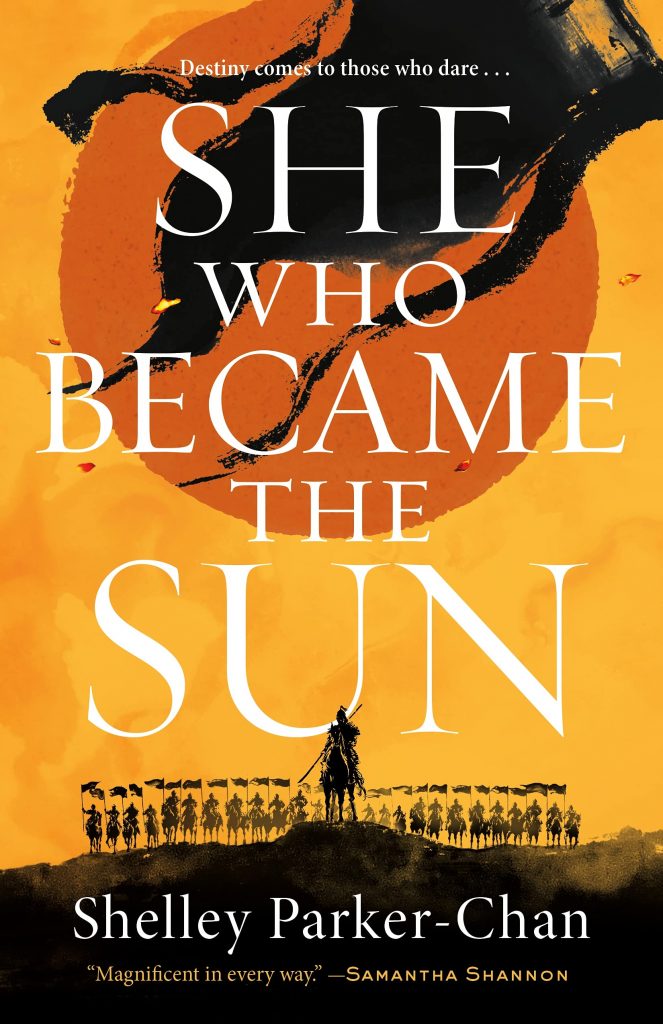
“I came into it primarily as a way of talking about genderqueerness and transness and a lot of it was coming from a subconscious place,” said Parker-Chan. “I didn’t want to put any labels on it. I was like, ‘I’m just gonna lay out how it feels to be in the world as someone with these feelings.’ And that was that sense of you were being told by the world that you’re something that you’re not.”
Zhu, in particular, wields her identity as a weapon, clinging desperately to a fate that she wants to become her own, determined to believe with all her soul that she is Zhu Chongba so that no one ever mistakes her for the skinny little nobody whose fate was described as ‘nothing’. She takes something that she had always been told was a weakness and turned it into a strength through sheer force of will. “Gender is her superpower,” said Parker-Chan. “She has this hidden side of her and she can use it to subvert expectations and use it to gain power; it’s where her power comes from.”
Zhu’s journey, which Parker-Chan hopes people take as a positive one, is contrasted with that of Ouyang, a general in the Mongol army, in direct opposition to Zhu’s rebel forces – though, as you learn later, Ouyang is not as loyal to the Mongols as they think he is. “Someone described him as an AMAB trans man, which I really liked because that actually is what he is, even though he’s a eunuch character,” Parker-Chan said of Ouyang, the book’s other primary protagonist. “He’s someone who’s had his masculinity taken away from him – it’s always been denied to him. People look at him and they see a woman, but he knows he’s not. And because he’s being denied his masculinity, he kind of clings to the performance of it in a really toxic way.”
“And I kind of wanted to, I guess, reflect that ambivalent struggle of you’re always being told you’re one thing, so you’ll try and defy the world and show, ‘No actually, I am this thing’ but actually maybe you’re doing so in a really problematic way. So there’s a lot of that misogyny in his particular perspective.”
The book is told in alternating perspectives, primarily Zhu and Ouyang (with a few side characters being featured), and the reader is given ample opportunity to get into both characters’ heads. Both characters are clever, ambitious, and struggling to stay true to the identities they’ve chosen for themselves. “I think by having two genderqueer protagonists – you know, both are problematic in their own way, but I thought giving that whole picture would be interesting for me,” said Parker-Chan. “I hope it’s also interesting to the reader.”
Naturally, I was curious about the sequel, which is set to be published next year. As always happens with me, as some of you may know by now, I read She Who Became the Sun not realizing it was part of a duology until after I finished, because it does have an ending, even though it’s a bit abrupt (if you don’t know there’s more coming). Parker-Chan found that amusing, although it was originally intended as a standalone novel when she first had the idea. And then she started writing.
“What I had not realized,” Parker-Chan said, “because I had not written a book before, was that books can only hold actually a much smaller amount of plot than you think they can. […] And all of my friends were like, ‘You know, this is gonna be a trilogy.’ I was like, ‘No, no, no, it’s never gonna be a trilogy, I’m never gonna write a trilogy.’ I started writing it and I was like, ‘Clearly this is too much plot for one book.’ So I did plan a trilogy.”
The first book, however, was intended to stand on its own, primarily because Parker-Chan worried that she wouldn’t be able to sell it. But Tor, who ended up publishing the book, were interested in buying two, and so the intended trilogy became a duology.
And the second book, I have been informed, will include more of the magical realism that was only briefly teased in She Who Became the Sun. “I sold the book, you may have read in other interviews or heard it, as a historical. It didn’t have any magic in it. It was a C-drama. It was an alt-history, it played with the figures, it was not historically accurate, it was told in a fantasy register – like big cathartic emotions and supernormal realism in the sense that people do a lot of betrayal and backstabbing and get run through and they survive. It wasn’t magical in any way.”
At the very beginning of She Who Became the Sun, Zhu’s father is killed and her brother sort of just lays down and dies. After she buries them, Zhu looks up from their graves and sees their ghosts, and from then on, she is able to see ghosts everywhere. However, this aspect of the book doesn’t show up that much and has very little factor on Zhu’s actions, and that’s because it wasn’t always there.
“Tor loved the book and I really wanted to go with them because I knew they understood it, especially the queerness. But for them to place it successfully, it needed a bit more of a magical element so that’s where the ghosts and the Mandate as a visible thing came from.”
“Now that I’m writing book two,” said Parker-Chan, “and I’ve already built in that magic, I have the luxury of being able to use it more effectively. So I’m looking forward to playing with Zhu’s abilities; ghosts are a huge part of book two, because it’s a lot about that grief and about the consequences of what you’ve done. And ghosts are very much a part of the past, and so they’ll turn up in some interesting ways. I hope.”
I don’t know about you all, but I can’t wait!
I’d like to thank Shelley Parker-Chan again for taking the opportunity to speak with me and suffering through all the logistical problems of coordinating an international phone call across multiple time zones! She Who Became the Sun is currently available wherever books are sold. Be sure to check out our review!
Author: Jamie Sugah
Jamie has a BA in English with a focus in creative writing from The Ohio State University. She self-published her first novel, The Perils of Long Hair on a Windy Day, which is available through Amazon. She is currently an archivist and lives in New York City with her demon ninja vampire cat. She covers television, books, movies, anime, and conventions in the NYC area.
Help support independent journalism. Subscribe to our Patreon.
Copyright © The Geekiary
Do not copy our content in whole to other websites. If you are reading this anywhere besides TheGeekiary.com, it has been stolen.Read our

